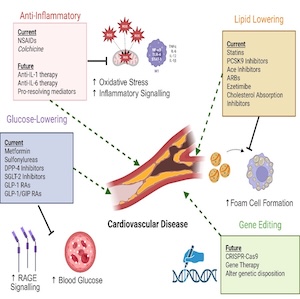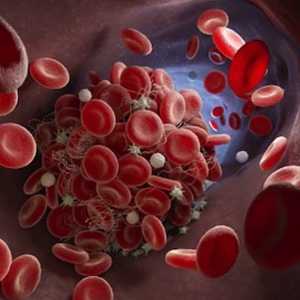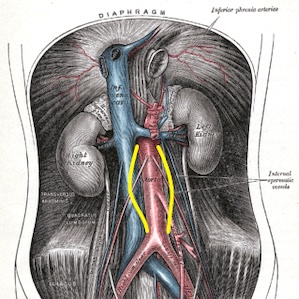Original Articles
3 November 2022
Vol. 1 No. 3 (2022)
Combined oral contraceptives and the risk of venous thromboembolism carriers of antithrombin, protein C or S deficiency: Sub-analysis of a prospective cohort study

Publisher's note
All claims expressed in this article are solely those of the authors and do not necessarily represent those of their affiliated organizations, or those of the publisher, the editors and the reviewers. Any product that may be evaluated in this article or claim that may be made by its manufacturer is not guaranteed or endorsed by the publisher.
All claims expressed in this article are solely those of the authors and do not necessarily represent those of their affiliated organizations, or those of the publisher, the editors and the reviewers. Any product that may be evaluated in this article or claim that may be made by its manufacturer is not guaranteed or endorsed by the publisher.
893
Views
291
Downloads
Most read articles by the same author(s)
- Paolo Prandoni, Franca Bilora, Raffaele Pesavento, Giorgina Salgueiro, Angeles Blanco-Molina, Raquel Lòpez-Reyes, Manuel Monreal, and the RIETE Investigators, Treatment of venous thromboembolism in pregnancy: findings from the RIETE Registry , Bleeding, Thrombosis and Vascular Biology: Vol. 1 No. 2 (2022)
- Samantha Pasca, Cristina Santoro, Chiara Ambaglio, Marisanta Napolitano, Marta Milan, Letizia Natali, Silvia Nannizzi, Filippo Mori, Paolo Simioni, Ezio Zanon, Comparison among three different bleeding scores and the thrombin generation assay to assess the different hemorrhagic phenotypes in patients with FVII deficiency , Bleeding, Thrombosis and Vascular Biology: Vol. 1 No. 2 (2022)
- Paolo Simioni, Vittorio Pengo, Paolo Prandoni, Thrombosis and hemostasis at the University of Padua: a reappraisal on the occasion of its 800th year of history , Bleeding, Thrombosis and Vascular Biology: Vol. 1 No. 3 (2022)
- Paolo Prandoni, New perspectives for prevention of the post-thrombotic syndrome , Bleeding, Thrombosis and Vascular Biology: Vol. 1 No. 1 (2022)
- Paolo Prandoni, Personalized bleeding risk assessment for atrial fibrillation patients on direct oral anticoagulants: the DOAC score , Bleeding, Thrombosis and Vascular Biology: Vol. 2 No. 3 (2023)
- Gualtiero Palareti, Paolo Prandoni, Cristina Legnani, Emilia Antonucci, Serena Zorzi, Alberto Tosetto, Lorenza Bertù, Sophie Testa, Vittorio Pengo, Walter Ageno, Ida Martinelli, Benilde Cosmi, Eugenio Bucherini, Daniela Poli, Rationale and design of a study on D-dimer use to stratify patients after a first unprovoked venous thromboembolism for their risk of recurrence: extended low-dose Apixaban given only to patients with positive D-dimer results , Bleeding, Thrombosis and Vascular Biology: Vol. 1 No. 1 (2022)
- Anna Poretto, Elisabetta Borella, Giacomo Turatti, Michelangelo Marobin, Elena Campello, Daniela Tormene, Paolo Simioni, Luca Spiezia, Association between non-O blood type and early unexplained recurrent spontaneous abortion in women with and without inherited thrombophilia , Bleeding, Thrombosis and Vascular Biology: Vol. 1 No. 3 (2022)
- Giovanni Di Minno, Gaia Spadarella, Ilenia Lorenza Calcaterra, Giancarlo Castaman, Paolo Simioni, Raimondo De Cristofaro, Cristina Santoro, Flora Peyvandi, Matteo Di Minno, The evolving landscape of gene therapy for congenital severe hemophilia: a 2024 state of the art , Bleeding, Thrombosis and Vascular Biology: Vol. 3 No. 2 (2024)
- Giuseppe Camporese, Paolo Prandoni, Walter Ageno, Aspirin or low-molecular weight heparin for thromboprophylaxis after a fracture? That is the question , Bleeding, Thrombosis and Vascular Biology: Vol. 2 No. 2 (2023)














